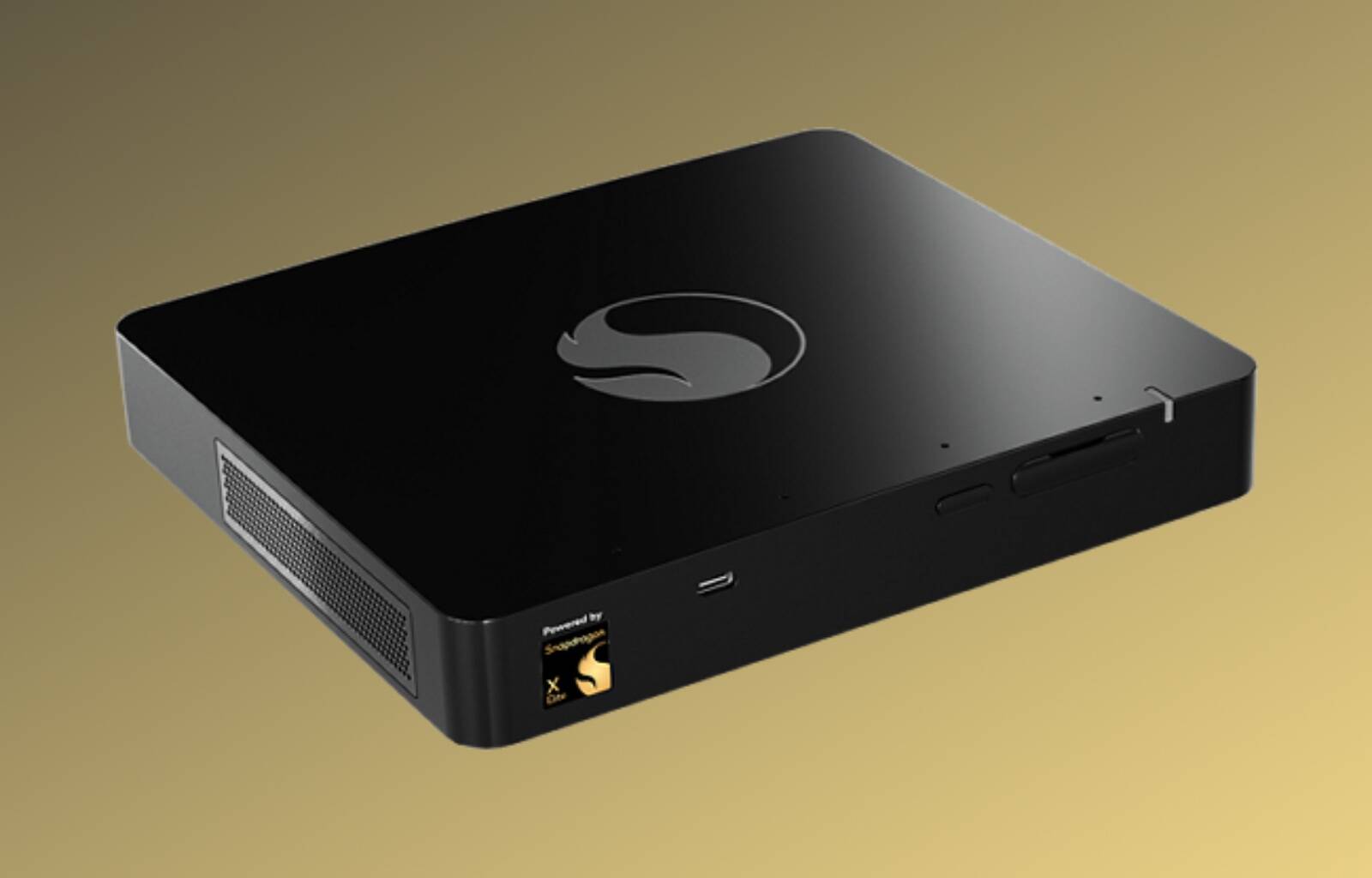Qualcomm 'pausing' X-Elite Dev Kit, Offering Refunds

Qualcomm has officially pulled the plug on its Snapdragon for Windows Dev Kits less than five months after the X-Elite powered mini-PCs were announced.
In a statement to customers this week, Qualcomm announced it was "pausing" the product and support and would be issuing refunds to customers who'd shelled out $899 for the Arm-compatible system.
"The launch of 30+ Snapdragon X-series powered PC's is a testament to our ability to deliver leading technology and the PC industry's desire to move to our next-generation technology. However, the Developer Kit product comprehensively has not met our usual standards of excellence, and so we are reaching out to let you know that, unfortunately, we have made the decision to pause this product and the support of it, indefinitely," Qualcomm said in a statement.
In a follow-up email to The Register, a Qualcomm spokesperson confirmed that the roughly 200 customers who actually received their development kits would not be required to return them.
Announced alongside Qualcomm's long-anticipated X-Elite and X-Plus mobile processors, the system was initially envisioned as a platform developers could use to build applications for the latest iteration of Windows on Arm.
Roughly the size of an Intel NUC, the system could be had with a Snapdragon X-Elite X1E-00-1DE with 12 cores clocked at between 3.8 and 4.3 GHz, an Adreno GPU, 32 GB of LPDDR5x memory, and of course a 45 TOPS NPU capable of satisfying Microsoft's lofty Copilot Plus requirements.
Dev kits like these aren't unusual, especially when new or unfamiliar architectures are introduced. They can provide developers with a relatively low-cost entry point for porting their applications to the platform.
- AMD aims latest processors at AI whether you need it or not
- If Dell's Qualcomm-powered Copilot+ PC is typical of the genre, other PCs are toast
- Qualcomm guns for Intel, AMD with cheaper 8-core X chips
- Intel's 120 TOPS Lunar Lake AI PC chips have landed
As you may recall, ahead of Apple's M1 launch in 2020, Cupertino offered developers early access to a development kit, which took the form of a Mac Mini powered by the A12Z SoC.
However, unlike Apple's Developer Transition Kit, Qualcomm didn't see fit to seed the device to developers ahead of time. In fact, the kits reportedly faced months-long delays, something tinkerer and Raspberry Pi aficionado Jeff Geerling chronicled in a lengthy Xitter thread.
While the argument can be made that Qualcomm's X-Elite systems could be had in various notebooks from the likes of Dell, HPE, and Lenovo, dev kits can be quite useful as a source of truth when trying to sort out whether or not anomalous behavior is unique to a certain system.
In place of the dev kit, Qualcomm is now directing devs to check out its device cloud instead. ®
From Chip War To Cloud War: The Next Frontier In Global Tech Competition
The global chip war, characterized by intense competition among nations and corporations for supremacy in semiconductor ... Read more
The High Stakes Of Tech Regulation: Security Risks And Market Dynamics
The influence of tech giants in the global economy continues to grow, raising crucial questions about how to balance sec... Read more
The Tyranny Of Instagram Interiors: Why It's Time To Break Free From Algorithm-Driven Aesthetics
Instagram has become a dominant force in shaping interior design trends, offering a seemingly endless stream of inspirat... Read more
The Data Crunch In AI: Strategies For Sustainability
Exploring solutions to the imminent exhaustion of internet data for AI training.As the artificial intelligence (AI) indu... Read more
Google Abandons Four-Year Effort To Remove Cookies From Chrome Browser
After four years of dedicated effort, Google has decided to abandon its plan to remove third-party cookies from its Chro... Read more
LinkedIn Embraces AI And Gamification To Drive User Engagement And Revenue
In an effort to tackle slowing revenue growth and enhance user engagement, LinkedIn is turning to artificial intelligenc... Read more

